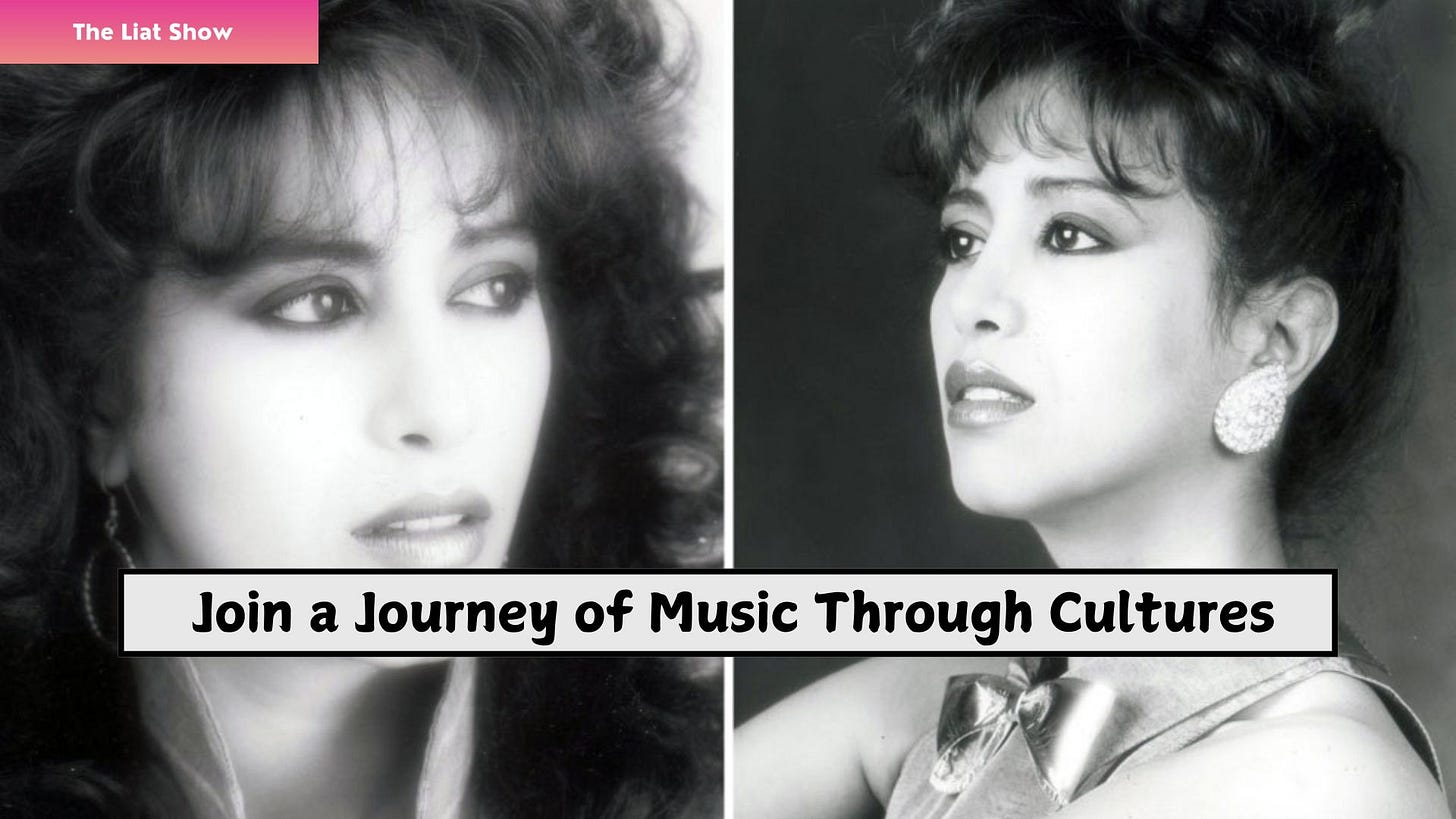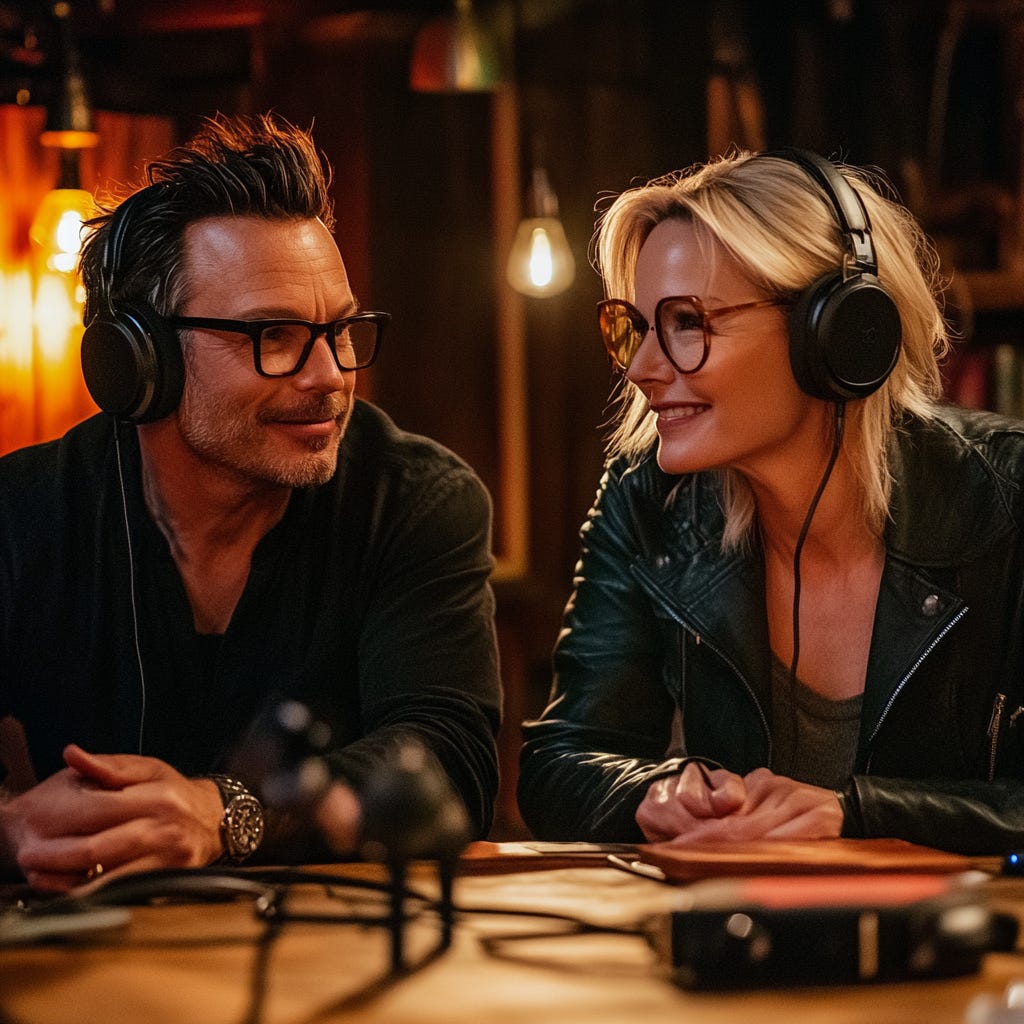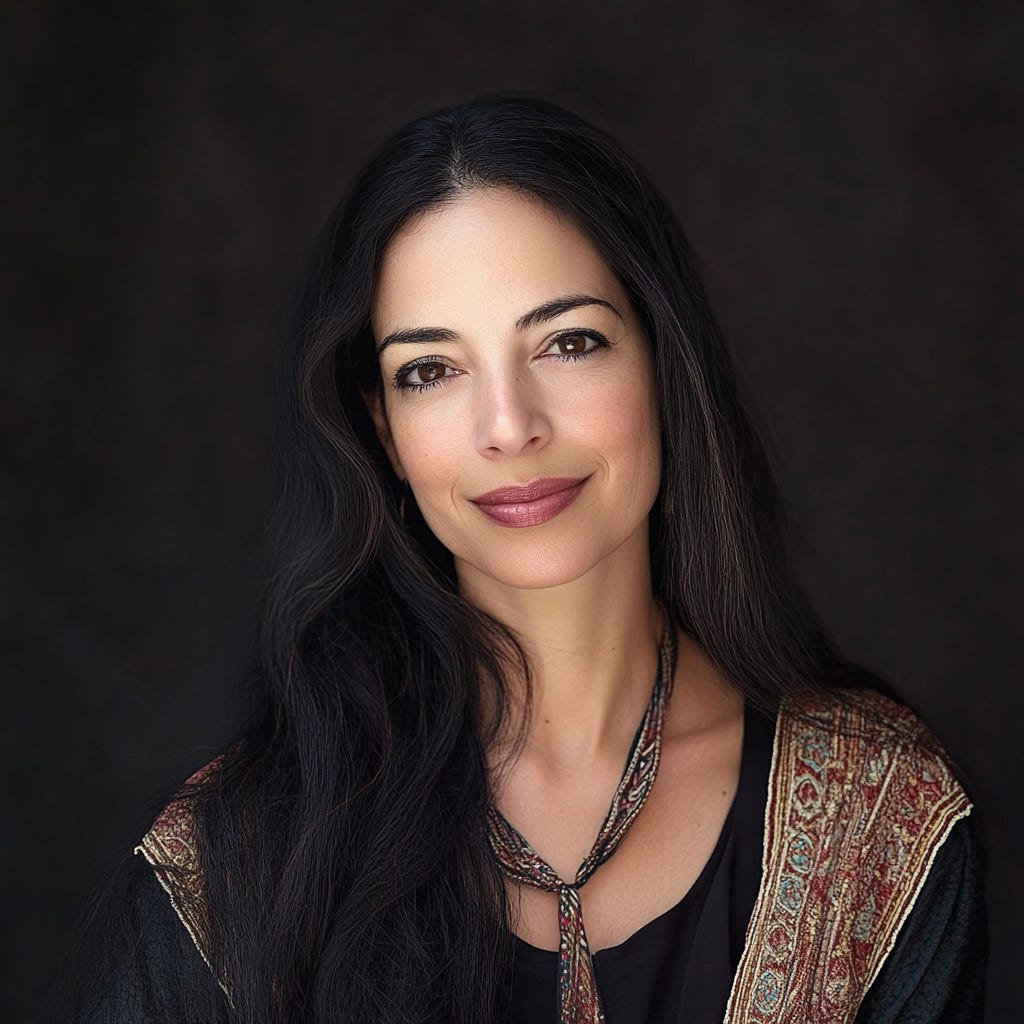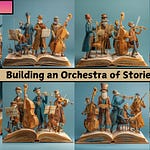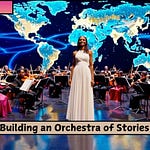Current Time.
When I started writing about Ofra Haza, it was clear to me that her genius lay not only in her voice but in the way she used it as a bridge between people’s worlds. The fusion wasn’t just an artistic choice; it was educational because she wanted to inspire and lead a change l. Growing up in a working-class neighborhood, surrounded by her immediate community's struggles and the vibrant traditions of her Yemeni heritage, Ofra had no choice but to carry all into her music along with the disparities people in her age group faced. Her work was personal, which is what gave it versatile relevance.
The hosts of the podcast touched on something I’ve always found fascinating about Ofra’s journey, which is how her music wasn’t just a form of entertainment but also a medium for processing emotions, grappling with identity, expressing resilience, and showing that leading a change is in everybody’s hands and not only in the hands of political leaders. Songs like "Im Nin'Alu" and "Chai" aren’t just memorable because of their melodies; they carry layers of history, displacement, and hope. For listeners who are not familiar with her background, the modern pop beats might feel like the main story. But for those who look deeper, every note is a conversation between generations, cultures, and personal struggles.
What I loved about one of the comments on the third episode in the series about Ofra Haza I’ve read online is how it drew a parallel between her roots and personal challenges and between ordinary people’s lives. It reminded me that stories like hers, mine, or yours are all part of a much bigger story and a legacy. It’s not just about music or identity but about how we carry what shaped us while daring to reimagine it in ways that feel true to our present. This is the legacy Ofra leaves behind, and I am still learning from her life lessons and mistakes.
To read the series of stories about Ofra Haza they talk about, click the links:
Learning to Fly with a Little Help from My Friends on Substack
Singing Through History: Ofra Haza’s Timeless Legacy in Israeli Music
Ofra Haza Bridging Cultures Through Music and Breaking Global Barriers
The Evolution of Ofra Haza From Israeli Star to Global Music Icon
Breaking Barriers but Bound by Shame in the Untold Story of Ofra Haza
To listen to the podcast episodes about Ofra Haza, click the links below:
The Power of Resilience and Music: Ofra Haza’s Story Explored in The Liat Show Podcast
Racism in Ofra Haza’s music journey through the lens of the NotebookLM podcast
The Clash Between Tradition and Progress in Ofra Haza’s Story Through the Lens of NotebookLM
The Liat Show Podcast Explores Ofra Haza’s Journey Through Culture, Music, and Legacy
Exploring Ofra Haza’s Legacy and Cultural Clashes with NotebookLM Podcast
Liat Show Podcast Highlights the Empowerment of Single Life through Ofra Haza with NotebookLM
Discovering Israeli Music Through NotebookLM with Fortis Sakharof and Ofra Haza on The Liat Show
25 Years Without Ofra Haza: Remembering the Icon Who Transformed Israeli Music
How Recorded Music Changed the Way We Remember Artists Forever
From Ofra Haza to 2025: When Did Music Stop Fighting for What’s Right?
Please fasten your seatbelts and subscribe.
Unlock my potential to write the next great chapter in the most extraordinary story ever told. Your support would make a big difference in taking this journey to the next level.
Follow me on My Journey to Infinity to find out. It will be more beautiful than you could ever imagine.
Liat
In this journey, I weave together episodes from my life with the rich tapestry of Israeli culture through music, food, arts, entrepreneurship, and more. I write over the weekends and evenings and publish these episodes as they unfold, almost like a live performance.
Each episode is part of a set focused on a specific topic, though sometimes I release standalone episodes. A set is released over several days to make it easier for you to read during your busy workday. If one episode catches your attention, make sure to read the entire set to get the whole picture. Although these episodes are released in sets, you can read the entire newsletter from the beginning, as it flows smoothly, like music to your ears - or, in this case, your eyes.




